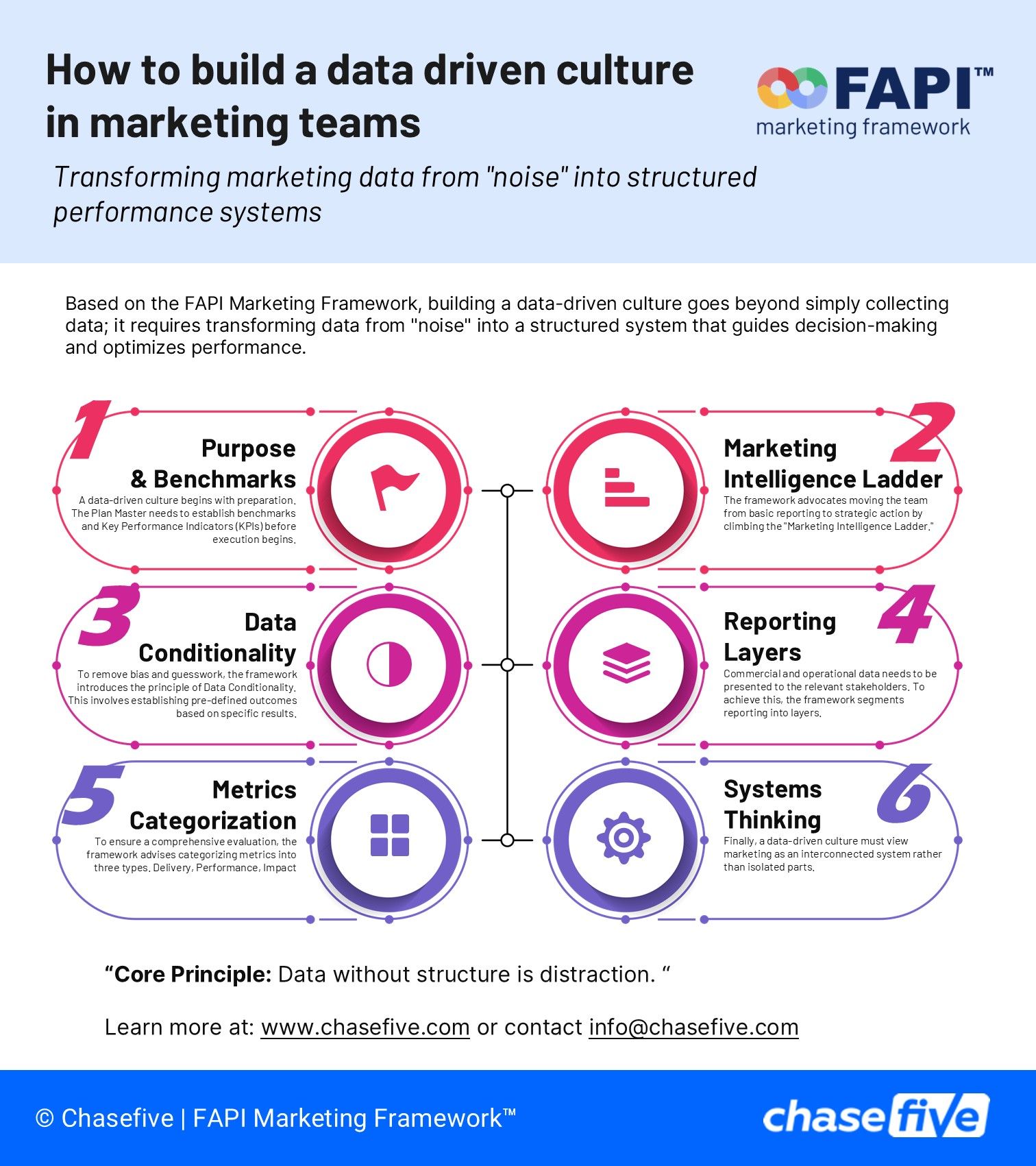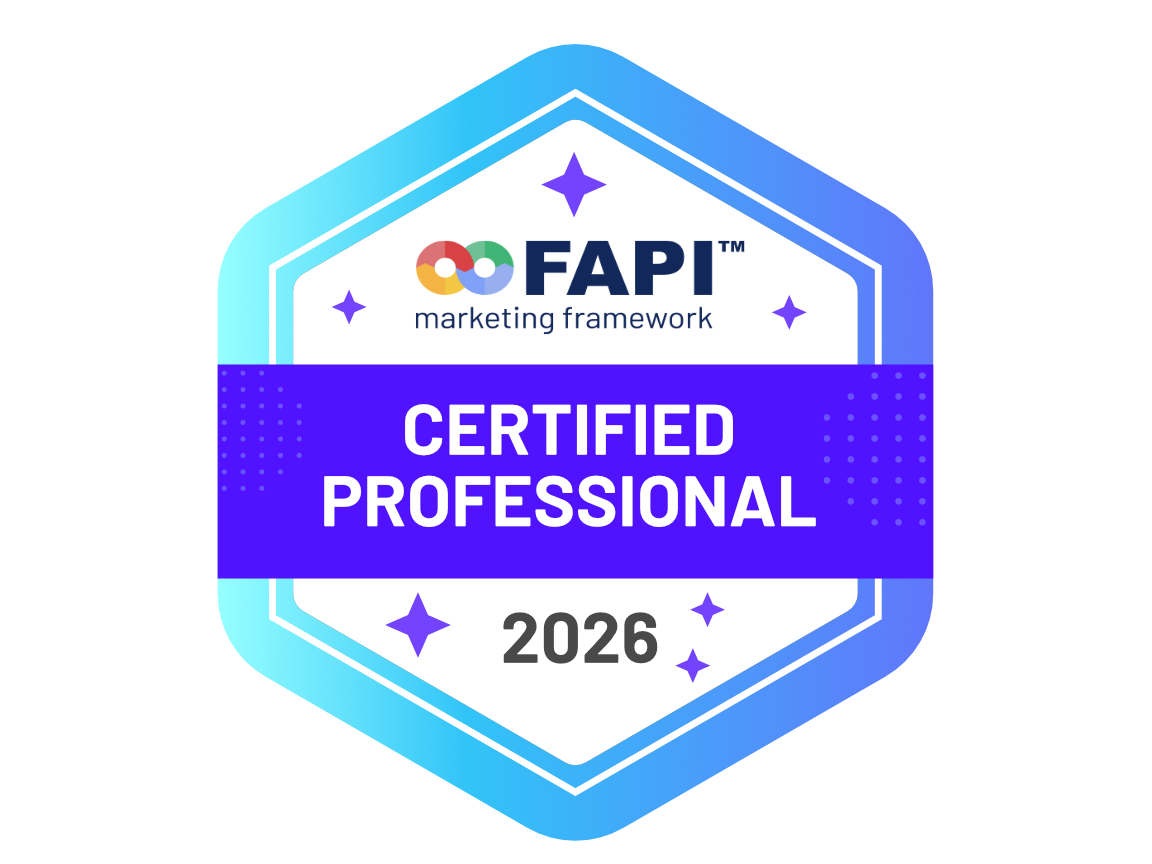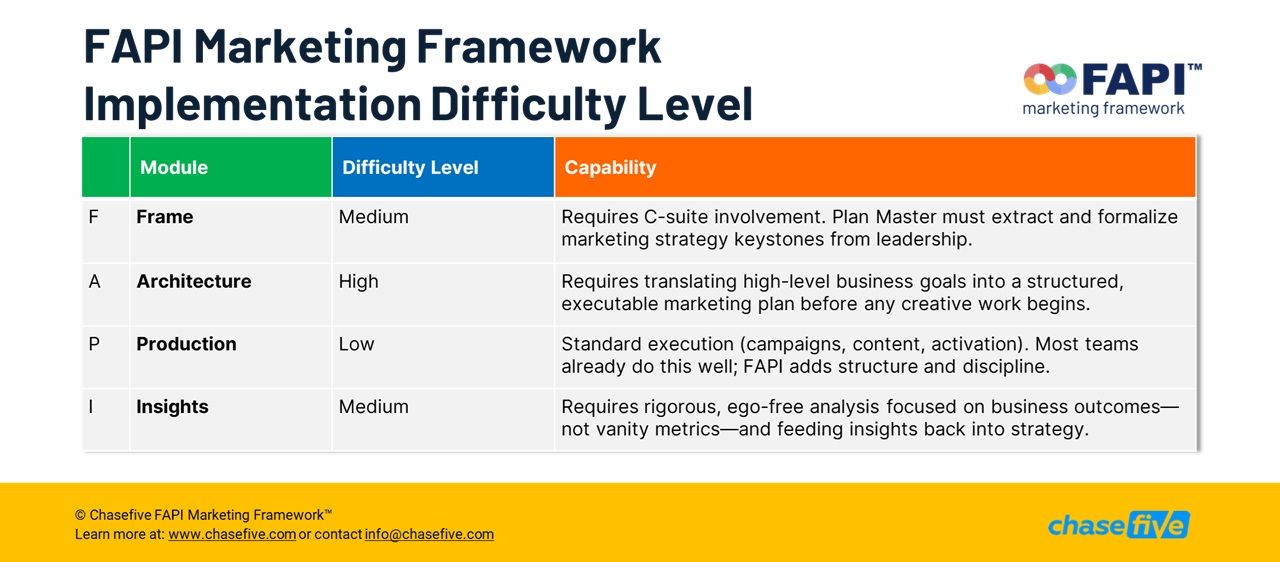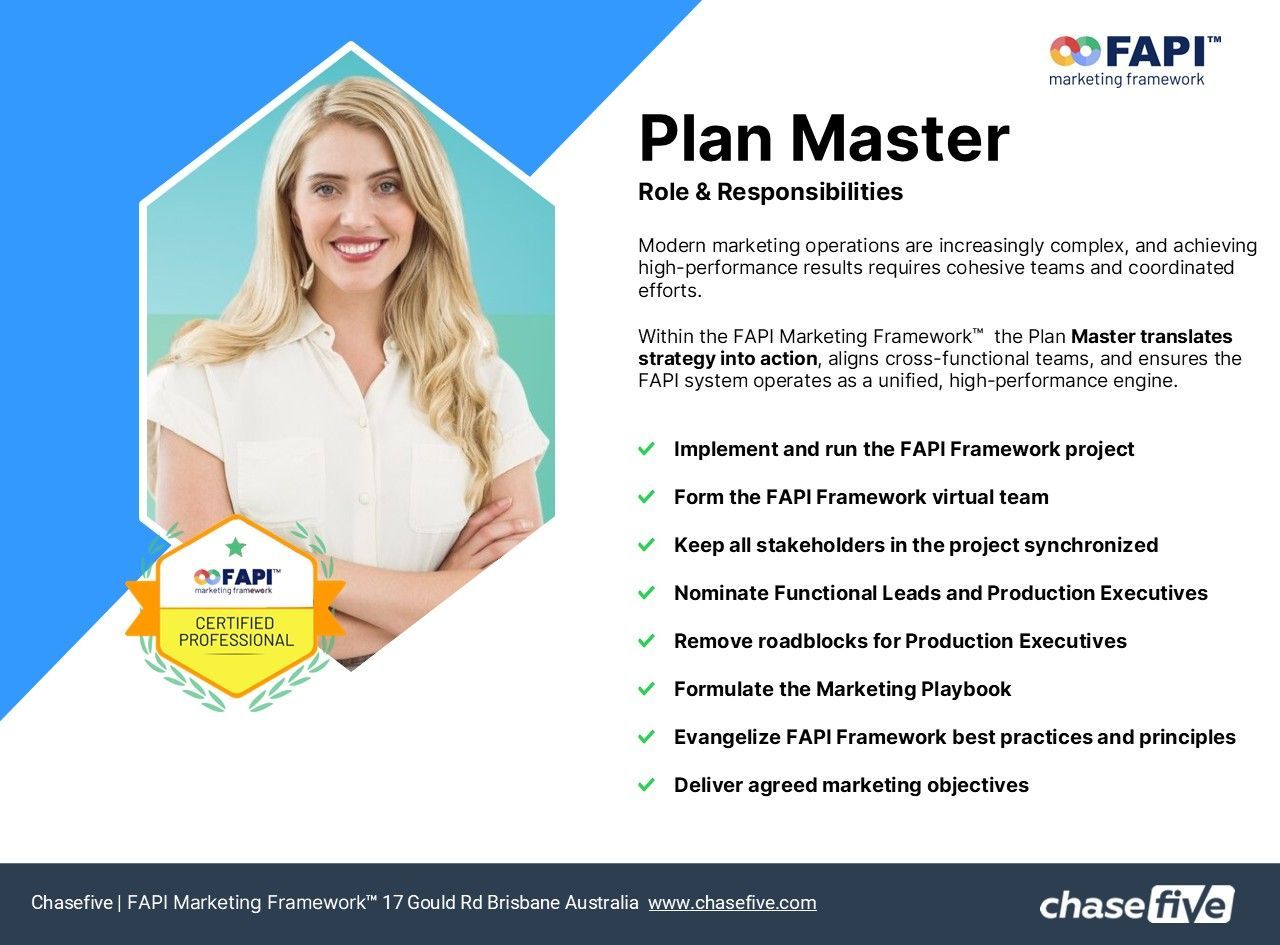Unveiling the Role of the Plan Master in the FAPI Marketing Framework
In the dynamic world of marketing, frameworks serve as blueprints to streamline strategies and drive results. The FAPI Marketing Framework, a structured approach for aligning marketing efforts with business goals, introduces a key role that acts as the linchpin of its success: the Plan Master.
Much like the conductor of an orchestra, the Plan Master ensures that every element of a marketing campaign harmonizes to create a cohesive and impactful performance. Let’s dive into the intricacies of this pivotal role and its significance in transforming strategy into results.
The Plan Master as a Vision Decoder
The journey begins with the Plan Master receiving the overarching business goals—target audiences, budgets, and competitive landscapes—from leadership. Rather than merely executing these directives, the Plan Master serves as a vision decoder, translating these broad objectives into actionable, detailed strategy briefs.
This process resembles turning a rough sketch into a high-definition blueprint, ensuring the business vision is clear, structured, and ready for execution.
The Architect of Marketing Operations
Once the strategy is defined, the Plan Master transitions into their next role: architecting the operational plan. Drawing from the FAPI Marketing Framework’s “Architecture Module,” they design the systems, resources, tools, and processes required for seamless execution.
This stage demands a deep understanding of various marketing disciplines to ensure every piece fits together. From foundational elements to detailed workflows, the Plan Master creates a roadmap that balances creativity with operational efficiency.
Hands-On Leadership in Production
Unlike traditional strategists who step back after planning, the Plan Master is deeply involved in the Production Module. They oversee the day-to-day execution of the marketing plan, coordinating specialists, tracking progress, and ensuring projects stay within scope and budget.
To maintain momentum, the Plan Master employs rituals like kickoff meetings, regular check-ins, and collaborative whiteboarding sessions. These practices not only foster clear communication but also cultivate a shared sense of ownership among the team, preventing missteps and keeping everyone aligned.
Master of Insights: Leveraging Data for Continuous Improvement
At the heart of the Plan Master’s responsibilities lies their ability to harness the power of data. As the “Master of Insights,” they analyze performance metrics to optimize strategies and drive continuous improvement.
By connecting these metrics, the Plan Master weaves a compelling narrative that showcases how marketing efforts directly contribute to business success.
Navigating Challenges with Agility
The Plan Master’s role is not without challenges. From managing complex attribution models to adapting to a changing digital landscape, they must remain agile and proactive. Tools like media mix modeling and data conditionality help them refine strategies, ensuring marketing dollars are spent wisely and effectively.
Their collaboration with data specialists and their ability to understand advanced analytics are key to overcoming these hurdles.
The Glue That Holds It All Together
The FAPI Marketing Framework emphasizes the importance of the Plan Master in bridging strategy and execution. Part strategist, part analyst, part storyteller, and part leader, the Plan Master ensures that every marketing effort aligns with business goals, is data-informed, and delivers measurable results.
By decoding the vision, architecting the plan, and driving execution, the Plan Master transforms theoretical frameworks into actionable, results-driven marketing initiatives.
The Future of Marketing Leadership
As organizations embrace frameworks like FAPI, the Plan Master emerges as a critical role for navigating today’s complex marketing landscape. Their ability to combine strategic thinking with operational expertise positions them as true leaders, capable of delivering value for both the business and its customers.
Are you ready to unlock the potential of the FAPI Marketing Framework in your organization? Start by finding your Plan Master—someone who can connect the dots, inspire the team, and turn plans into measurable success.
Want to learn more about the FAPI Marketing Framework?
Explore the
FAPI Marketing Framework guidebook for deeper insights, practical advice, and tools to elevate your marketing strategy. Who knows? You might even discover your inner Plan Master along the way.







